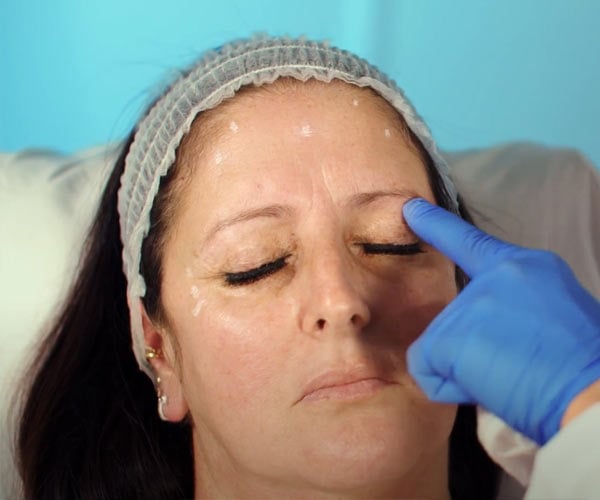Places to Get Botox and Places to Avoid
By Dr. Stephen Cosentino
PRESIDENT OF EMPIRE MEDICAL TRAINING
With millions of treatments performed each year, Botox is by far the most popular minimally invasive cosmetic treatment. A slightly different formulation of Botox is used to treat a variety of medical conditions as well, including chronic migraine and excessive sweating.
Because Botox is so popular, many assume it’s easy to find and can be used to treat virtually any cosmetic or muscular complaint.
That’s not quite true. To achieve the results they desire with minimal risk of complication, patients should understand where it’s appropriate to inject Botox, where to avoid Botox injections, and how to find experienced providers capable of addressing their needs.
Places to Get Botox — Areas of the Face, Neck, and Body
Botox is indicated for a range of cosmetic and medical complaints. It comes in two similar but distinct formulations: Botox Cosmetic for cosmetic issues and Botox Therapeutic for medical treatments.
Botox Injection Sites on the Face and Neck
Botox can be injected into many areas of the face and neck:
- The forehead, to treat forehead lines and wrinkles
- The area between the eyes (glabella), to treat frown lines
- The corner eye areas, to treat fine lines known as crow’s feet
- The corners of the mouth, to treat marionette lines
- The upper lip, to treat smoker’s lines
- The sides of the nose, to treat bunny lines and nasolabial folds
- The chin, to smooth dimpling and chin lines
- The platysma muscles of the neck, to treat platysmal bands
Botox Injection Sites on the Body
Botox’s ability to relax the muscles makes it a useful treatment for much more than skin-deep signs of aging. Therapeutic Botox injection sites include:
- The muscles of the upper back and neck, to treat chronic migraine
- Areas containing sweat glands, such as the underarms and soles of the feet, to treat excessive sweating
- The lower abdomen, to treat urinary incontinence
Botox Therapeutic may be injected into the face as well, such as around the eyes (to treat involuntary eyelid movements known as blepharospasm) and the muscles of the jawline (to treat TMJ disorders).
Where Not to Inject Botox
Even small amounts of Botox can be harmful when injected incorrectly. Providers should never inject Botox into:
- Blood vessels, which can lead to systemic complications
- Muscles beneath the skin, which can also cause systemic complications
- The immediate eye area, which can cause eyelid drooping (ptosis)
- The upper layer of skin, which reduces Botox’s effectiveness
Where to Find Botox Treatment Providers
Botox is typically injected by trained professionals under the supervision of a board-certified physician, dentist, nurse practitioner, or physician assistant. The most reputable Botox injectors complete comprehensive Botox training courses and are transparent about their education and training.
You can use Botox Cosmetic’s provider finder to locate licensed, board-certified Botox injectors in your area. To find a provider that fits your needs, consider the following:
- Who will perform the procedure. At many cosmetic clinics, straightforward Botox procedures are handled by registered nurses who’ve completed additional education to become aesthetic nurses. Elsewhere, cosmetic surgeons, dermatologists, or even dentists may do Botox treatments themselves.
- What services the provider offers. Distinguish between cosmetic and therapeutic Botox services, as some providers only offer one or the other. Your best choice for a brow lift or frown lines treatment might be different from your best choice for hyperhidrosis or blepharospasm treatment.
- The cost and value. Avoid providers with pricing that seems too good to be true and providers that don’t offer follow-up consultations.
The provider’s experience and expertise. Avoid unlicensed providers who evade questions about their Botox course. Even if a provider is a board-certified physician or dentist, ask about their experience with the specific procedures you’re seeking. You don’t want to be a guinea pig.


